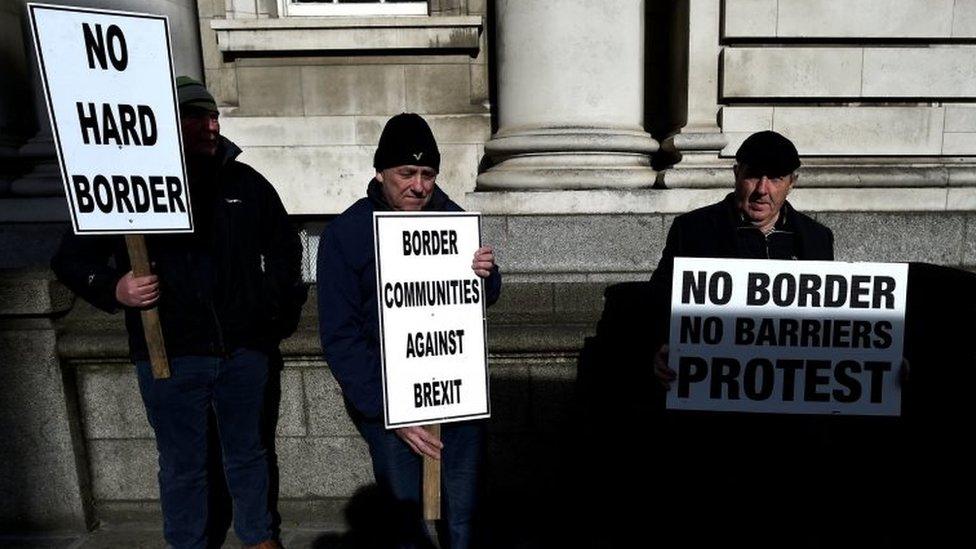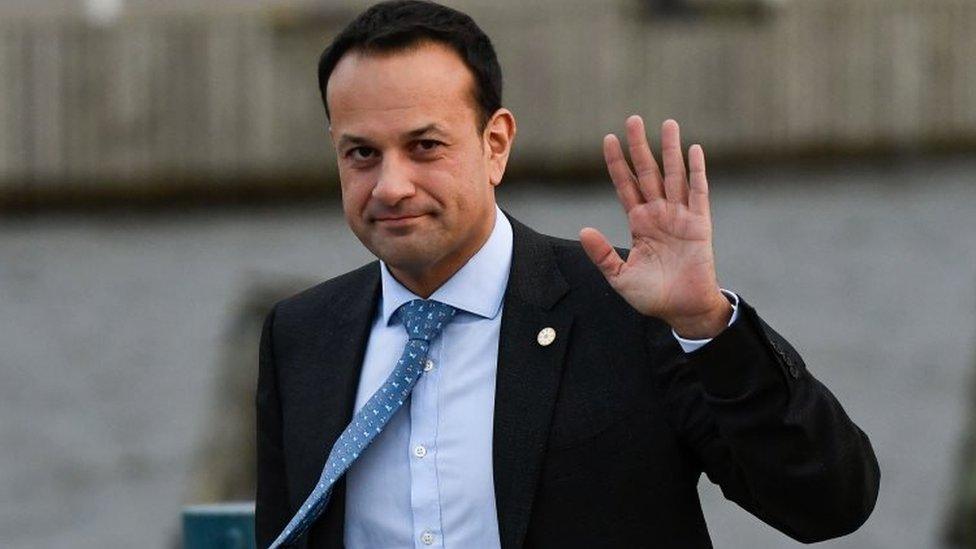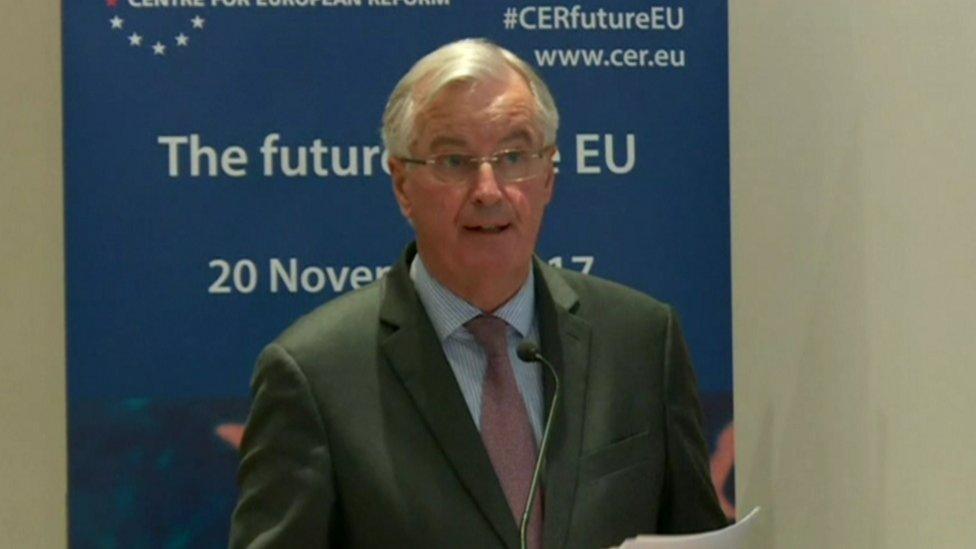Brexit: Ireland 'to play tough' over talks - commissioner
- Published

The Irish Republic's EU commissioner has said Dublin will "play tough to the end" over its threat to veto Brexit talks moving on to discuss trade.
The European Union has said "sufficient progress" has to be made on the Irish border before negotiations on the UK and EU's future relationship can begin.
Phil Hogan told the Observer, external staying in the customs union would avoid the need for a hard border on the island.
The DUP said Northern Ireland and the rest of the UK must not be different.
Arlene Foster, the leader of the Democratic Unionist Party, which is in a confidence-and-supply arrangement with the Conservative government, said she would not support "any suggestion that Northern Ireland, unlike the rest of the UK, will have to mirror European regulations".
Downing Street has said the whole of the UK will leave both the customs union and the single market when it leaves the EU in 2019.
Labour said nothing should be done that endangers the Good Friday Agreement in Northern Ireland, while the Liberal Democrats said Tory divisions over Brexit were "stoking tensions".
'Blind faith'
The EU has given Prime Minister Theresa May until 4 December to come up with further proposals on issues including the border, the Brexit divorce bill and citizens' rights, if European leaders are to agree to moving on to trade talks.
But Mr Hogan, the EU's agriculture commissioner, accused some in the British government of having what he called a "blind faith" about securing a comprehensive free trade deal after Brexit.
He said it was a "very simple fact" that "if the UK or Northern Ireland remained in the EU customs union, or better still the single market, there would be no border issue".
In these circumstances regulations either side of the border would remain the same, and so a near invisible border would be possible.

Taoiseach Leo Varadkar has asked for assurances of no hard border
The Irish government has always insisted there must not be a hard border between the Republic and Northern Ireland, with Taoiseach Leo Varadkar saying he must have written assurance from the UK before Brexit talks can move on.
Irish Foreign Minister Simon Coveney has also said the UK's desire for no hard-border on the island of Ireland was "aspirational".
There could be no movement to phase two "on the basis of aspiration", he said.
But in her speech in Florence, this September, Mrs May restated that both the UK and EU will not accept any physical infrastructure at the border.
'Desperately worried'
Meanwhile, International Trade Secretary Liam Fox told Sky News: "We don't want there to be a hard border but the United Kingdom is going to be leaving the single market and customs union."
He said progress towards a deal must be quicker and accused EU negotiators of making the so-called "divorce bill" a sticking point, adding: "We can't get a final answer to the Irish question until we get an idea of the end state."
Shadow international trade secretary Barry Gardiner told the BBC's Andrew Marr Show that the Irish government was "desperately worried" about the possibility of a hard border.
He said Labour had not ruled out advocating membership of the single market or, if necessary, some form of customs union.
But he declined to commit to a preferred solution, arguing that Labour was not in government and therefore not involved in the Brexit talks.
"I'd be very happy if Theresa May wanted to move over and call that election and let us do that, but until we're round that table it's not sensible to say what you can get out of the negotiations," he said.
Liberal Democrat Brexit spokesman Tom Brake said: "Government divisions over what Brexit means are stoking tensions. The government and its Brextremists must swallow their pride and do the right thing for Ireland and the UK.
"Leaving the EU does not have to mean leaving the single market and customs union."
Suggestions for alternate arrangements have included a new partnership that would "align" customs approaches between the UK and the EU, resulting in "no customs border at all between the UK and Ireland".
- Published21 November 2017
- Published20 November 2017
